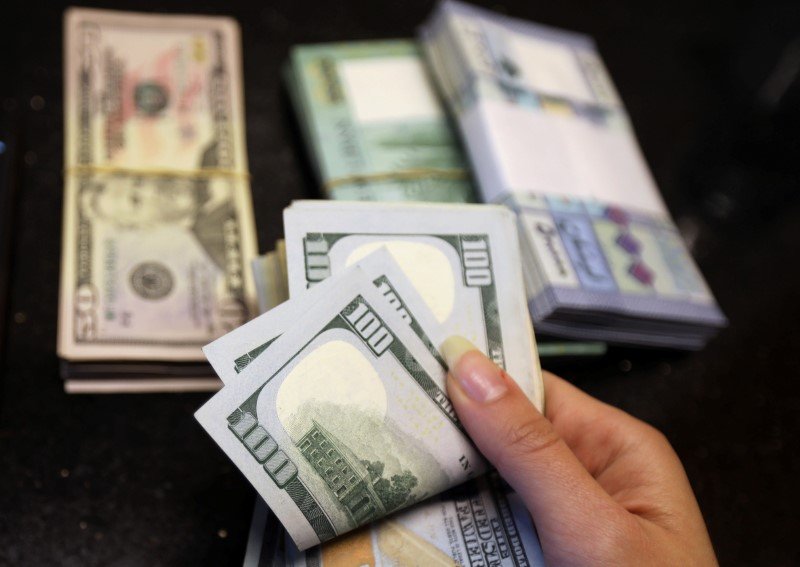The government's foreign income remained higher than the expenditures with receipt of record-high workers' remittances, notable growth in export earnings, and no major growth in import payments.
“After current account balance posted deficit of $613 million in July 2019 and a deficit of $100 million in June 2020, in July 2020 the current account balance swung upwards into a surplus of $424 million," Prime Minister Imran Khan on Monday wrote on micro-blogging site Twitter.
He said the strong turnaround into surplus from a deficit is a result of a continuing recovery in exports, which rose by 20% compared to June 2020 and record remittances. “"Masha Allah Pakistan's economy is on the right track,” he said.
The State Bank of Pakistan (SBP) elaborated on its Twitter handle that the strong turnaround in the remittances and exports is achieved "with support from several policy and administrative initiatives taken by the SBP and the federal government.
"This is the fourth monthly surplus since last October," the central bank said in its second tweet.The export of goods increased to $1.89billion in July compared to $1.58billion in June. It was, however, 14% lower than $2.22billion export in July 2019, according to the bank.
The remittances hit a record high of $2.77billion in the single month of July compared to $2.47 billion in June and $2.03 billion in July 2019.The import of goods enhanced by 2% to $3.63 billion in the month compared to $3.56 billion in the previous month. It was, however, 13% lower than $4.18 billion import of July 2019.
"The balance of the current account in surplus is in line with the market expectations," Next Capital Managing Director Muzammil Aslam said. "The growth in workers' remittances was, however, surprising [in the month of July 2020].""Now the question is whether the balance in the current account would be maintained in surplus, going forward," Aslam questioned.
He said the encouraging number –the balance in surplus – would at least help the economy to absorb shocks if it encounters any due to unexpected higher import payments in the remaining 11 months of the fiscal year. "The account in surplus has created a buffer to absorb the shocks."
The government has targeted to record the current account balance in deficit in the range of 1-1.25% ($3-3.5 billion) in the year 2020-21 compared to 1.1% (around $3 billion) in the previous fiscal year 2019-2020. "The surplus in July has made it easier to achieve the set target of the current account deficit," he said.
Earlier, International financial institutions and global credit rating agencies have anticipated widening of the current account deficit to 1.6-2% of the gross domestic product (GDP) in the fiscal year 2021.
They foresaw a drop in inflow of remittances and export earnings during the year due to COVID impact, going forward. Besides, imports may increase with the reopening of the domestic economy from the four-month-long lockdown.
S&P Global Ratings said last week: "We expect the current account deficit to remain below 2% of the GDP over the next few years as the economy continues to rebalance, although higher capital imports associated with the restart of the China-Pakistan Economic Corridor (CPEC) projects could widen the deficit again."
"Gross external financing needs remain elevated, at approximately 140% of current account receipts and usable foreign exchange reserves at the end of fiscal 2020.
“We expect this figure to gradually decline to nearly 119% by the end of fiscal 2023, but a rekindling of import demand or higher commodity prices would challenge that trend," it added.
Several foreign and local experts doubt whether Pakistan would maintain the remittances on the higher side after achieving record high in the past two consecutive months; June and July.
Many believe this was single-time growth since Pakistani expatriates coming back home after losing jobs in foreign countries are transferring their savings to the homeland. Several others, however, believe otherwise. Pakistan received record-high remittances at $23.10 billion in FY20 as well.
Aslam said the growth in remittances – a key component in the current account in surplus – is seen due to inflow of remittances through official channels, mostly via banks.
He said people relied on official channels after the collapse of illegal channels like hundi/hawala under the global lockdown and suspension of international flights.
"The SBP is introducing Roshan Digital Accounts. This would help to sustain the remittances on the higher side and keeping the current account deficit manageable in FY21," he said.
Sustaining higher export earnings may remain a challenge under the Covid-19 impact. Exporters, however, reporting receipt of new orders as well, he said.
Trump’s tariff war: 5 reasons why Xi Jin…
10-04-2025
Donald Trump paused tariffs on most nations but increased levies on China. China retaliated and called for mutual respect in dialogue. The trade war threatens global supply chains and economic...
Read more'If negotiations not satisfactory, count…
10-04-2025
The European Union has decided to halt its tariffs on goods from the United States for 90 days. This follows a similar move by US President Donald Trump. Ursula von...
Read moreFixed deposit investors take note! Lock …
10-04-2025
With the RBI reducing repo rates, fixed deposit interest rates are expected to fall. Experts advise investors to act quickly and lock in higher rates, especially in longer-term FDs, to...
Read moreDonald Trump’s 90-day pause on tariffs: …
10-04-2025
India aims to accelerate trade agreement talks with the US after a temporary pause on reciprocal tariffs, while the US increases duties on China. India was among the first to...
Read moreTrump tariff turmoil: Market lingo decod…
10-04-2025
Amidst ongoing trade tensions, financial jargon can be confusing. This guide clarifies terms like bear and bull markets, dead cat bounces, and capitulation, all reflecting investor sentiment. Economic downturns, signaled...
Read moreTrump tariffs impact: Chinese companies …
10-04-2025
Chinese electronics component makers are offering Indian companies price reductions up to 5% amid the US-China trade conflict and decreased American demand. This concession, driven by hefty US tariffs on...
Read moreAsian stocks jump after US markets hit r…
09-04-2025
Asian markets surged on Thursday after Trump announced a 90-day pause on most planned tariffs, replacing them with a reduced 10% Reciprocal Tariff. The move sparked a global relief rally...
Read more‘American customers won’t buy anything t…
09-04-2025
Chinese Christmas decoration makers are facing a sharp decline in US orders after Donald Trump hiked tariffs on Chinese goods by 104%. Factories in Jinhua report stalled or cancelled shipments...
Read moreStock market holiday: Are BSE, NSE close…
09-04-2025
Stock market holiday today: The Bombay Stock Exchange (BSE) and National Stock Exchange (NSE) are closed for trading today, April 10. Regular trading sessions, operating from 9:15 a.m. to 3:30...
Read more



















































